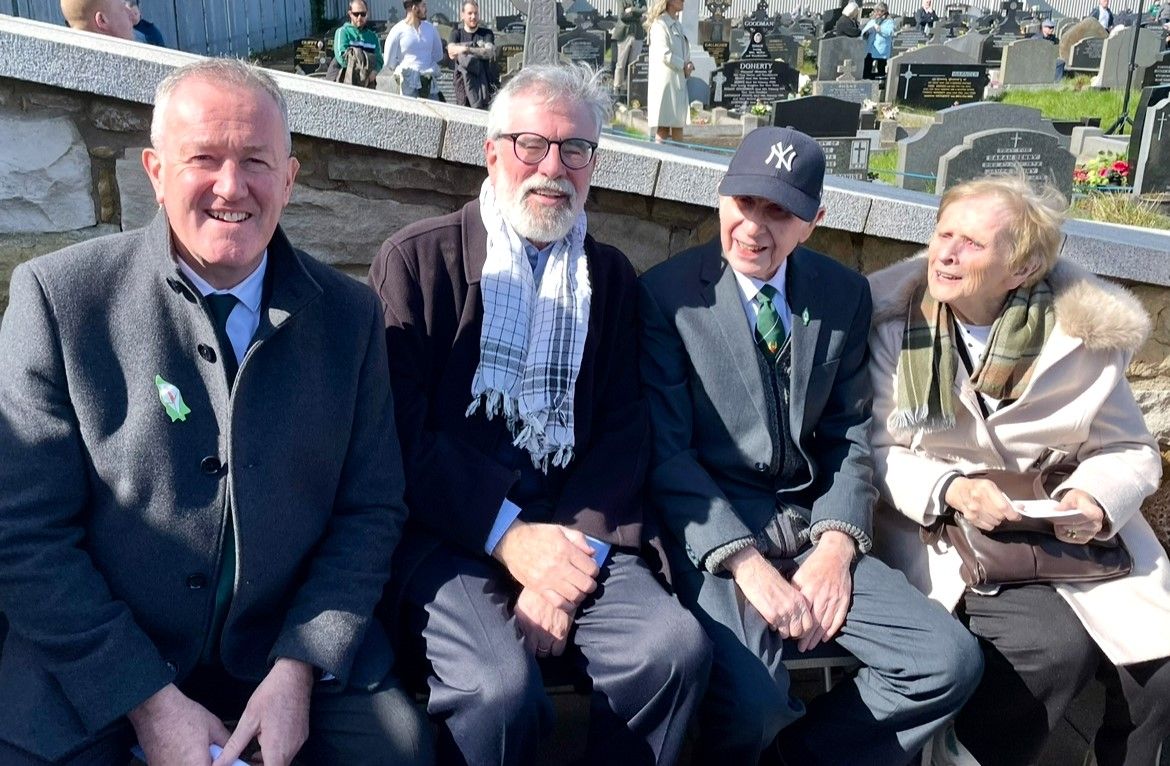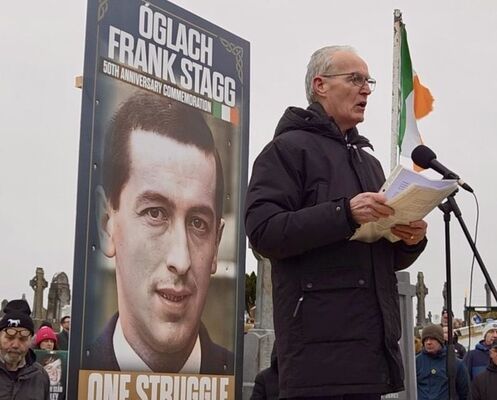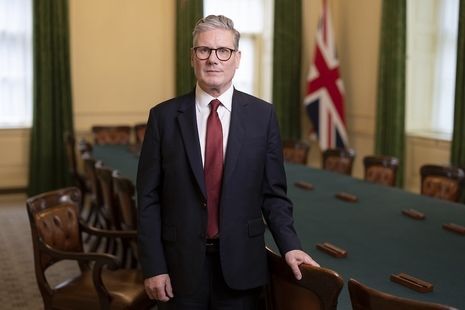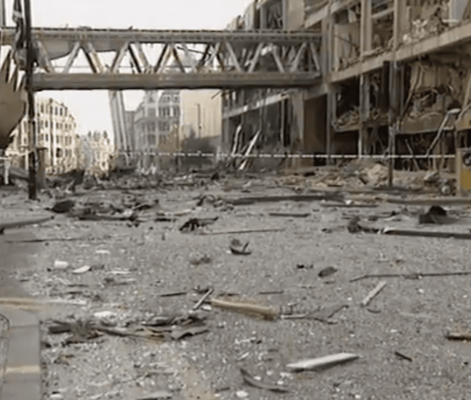PHILOMENA Mulvenna died in the early hours of last Friday morning. I have known Philomena and her husband Paddy for most of my adult life. Paddy and she were 72 years married, they had seven children: Colette, Teresa, Brendan, Michael, Desmond, Patrick and baby Martin, who died in his infancy.
Patrick, the oldest son, was an IRA volunteer shot dead by the British Army in Ballymurphy along with his friend Jim Bryson in 1973.
Phyilis and Paddy had 18 great-grandchildren with a great-great-grandchild due in January next year. Mrs Mulvenna was a great woman, she reared her family in war and in peace. Particularly when Paddy was incarcerated in Long Kesh. Like so many other women, she became the Crann Taca of her clan.
Three of her children also went to prison, so through all this and the long years of conflict, prisons had to be visited and children and grandchildren had to be guided and protected.
Mrs Mulvenna protested with the other women against military occupation and for decades on behalf of the political prisoners, especially the Armagh women and the blanket men. The song sings, unfairly, of the boys of Ballymurphy, but all of us know that without the women of Ballymurphy, the struggle would have not succeeded as it has in this republican heartland. Like working class Republican women throughout the North, these mothers and grandmothers, sisters and wives were unbreakable, indomitable and resilient.
Mrs Mulvenna was also a woman of faith, able to separate out the highly politicised counter-insurgency role of the Catholic hierarchy and her own firm belief in Christian and Catholic values.
She was troubled with illness for the last number of years, and she bore this with great stoicism.
When I visited her and Paddy, she was always keen to learn what was happening as the war gave way to the peace process. She and Paddy had it figured out for themselves. They were loyal and independently minded and in support of the efforts which have led us all towards the final stages of British rule in this country.
I want to extend on behalf of myself, Collette and our family, our deepest condolences to Paddy and the Mulvenna family.
Brendan
I WAS deeply saddened to hear of the death of Brendan. I had the pleasure of knowing him for decades, although I haven’t seen him in ages.
I first met Brendan in the late 1960s when he owned a pub – Murphy’s – in Albert Street. After he sold the pub in 1972 he became a photographer. But not just any photographer. Brendan was an outstanding photographer with no equal.
For years he was a regular face at marches, demonstrations, political events, press conferences and riots. He took photos of protests and funerals arising from the 1981 hunger strike and the battle of the funerals later that decade. His photos could be seen every day in the Irish News.
I always marvelled at his ability to capture amazing images often in the most dangerous of conditions. Brendan’s book – Eyewitness: Four Decades of Northern Life – with words by his late colleague Seamus Kelters is an excellent publication which highlights his exceptional talent as a photographer.
Brendan was a decent human being and a gentleman. With Hugh Russell and Anne McManus they made a formidable team which Mal McCann has sustained.
I want to extend my sincere condolences to his wife Geraldine, who he credited with developing his first roll of film, his family and large circle of friends.
Martin
MARTIN Collins would not have been well known on this side of the Irish Sea. But in London he was central to many of the Irish organisations and campaigns, as well as the solidarity movements like Troops Out. Martin campaigned for decades against British injustice in Ireland. It was through this work that I often met him in London.
As it did on many others, the 1981 hunger strike had a significant impact on his activism. He was central to the work of the Labour Committee on Ireland and he edited its quarterly magazine ‘Labour and Ireland’. He organised conferences exposing the indiscriminate use of lethal plastic bullets. He also championed the MacBride Principles campaign in support of an end to discrimination in employment.
In 1985, Martin published: ‘Ireland After Britain’, a series of essays arguing the case for Irish unity. The book was dedicated to the 1981 hunger strikers and It included a contribution by me and by Seán MacBride, Mary Robinson, Rita O’Hare, Ken Livingstone and Tony Benn.
In the 1990s he worked for the Labour MP Kevin McNamara and later as Director of the Irish Traveller Movement.
When Joe Dwyer started working for the Sinn Féin team in London Martin was always on hand to assist or advise. He had a good handle on the Westminster system. Martin, to the best of his knowledge, had no Irish family connections but he was a firm believer in justice and equality and was opposed to colonisation and imperialism. His solidarity and insights will be missed.
I want to extend my condolences to his partner Ginnie.
The suffering continues in Palestine
TO mark International Day of Solidarity with the Palestinian People there will be an event in Ionad Eileen Howell/St Comgall’s in Belfast on November 29 at 11am. This will involve a conversation between myself and Seanadoir Chris Andrews, who recently participated in the Global Freedom Flotilla to Gaza.
Chris will talk about the importance of efforts like the flotilla in highlighting Israel’s occupation of the Palestinian territories, its denial of the right of the people of Palestine to self-determination and his experience of being held by Israeli forces. It will also be an opportunity to discuss the continuing Israeli genocide and afterward there will be a white line picket at the International Wall. Later there will be a march organised by Belfast IPSC, leaving the Writers' Square at 1pm to Belfast City Hall.
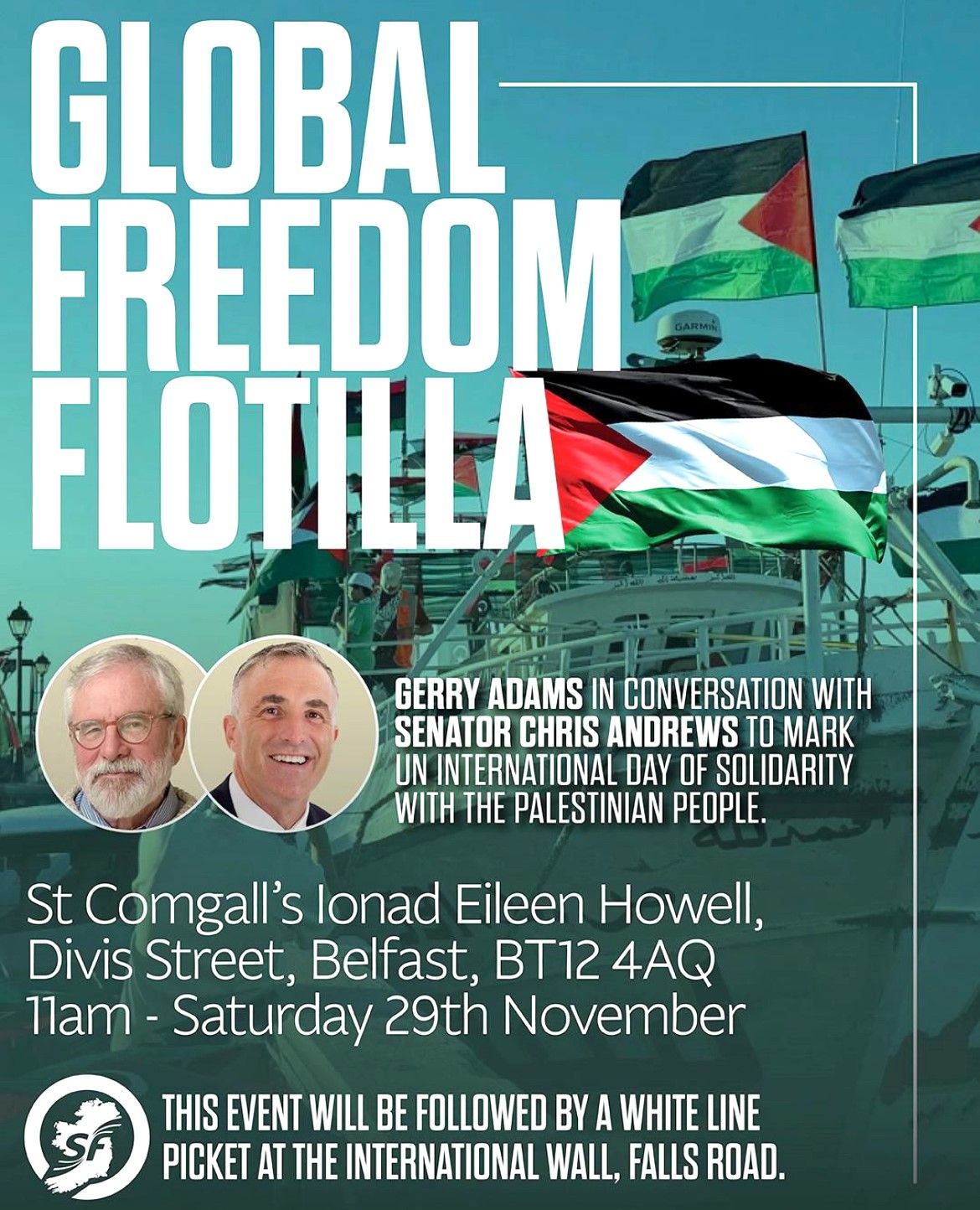
Israel’s genocide in Gaza and the ongoing settler attacks on Palestinian villages and families in the West Bank continue unabated despite the ceasefire. To add to the desperate conditions in the Gaza Strip strong winds and heavy rain have swamped many of the makeshift shelters or tents that tens of thousands of Palestinians are forced to live in. They struggle to stay dry and warm as Israel blocks temporary shelters, food and medicines from entering Gaza. Recent video footage shows Palestinian families braving torrential rain and heavy winds as they struggle to find shelter.
Tamara Alrifai, of UNWRA has warned that the cold and the rain are adding significantly to the hardship faced by the Palestinian people. She said: “People in Gaza are extremely vulnerable after two years of conflict, restrictions on humanitarian assistance, food, shelter, material, medicines, but also restrictions on commercial supplies going in even during the ceasefire. People are hungry, people are traumatised. Most people have lost their homes.”
The most recent statistics emerging from the region indicate that almost 70,000 men, women and children have been killed, with thousands more still buried under the rubble. Over 170,000 Palestinians have been wounded, many of these are children with life-changing injuries. And since the ceasefire around 250 Palestinian have been killed by Israeli forces.
Meanwhile, the Israeli Prime Minister and war criminal Benjamin Netanyahu has again rejected the creation of a Palestinian state. He said: “Our opposition to a Palestinian state in any territory has not changed. Gaza will be demilitarised, and Hamas will be disarmed, the easy way or the hard way.”
The Palestinian people need our support and solidarity. If you can, come along to Ionad Eileen Howell/St Comgall’s at 11 am on November 29 and lend your voice to the demand for an end to the genocide.
A passport office for the North
THE consistent refusal by Fianna Fáil and Fine Gael to establish a passport office in the North flies in the face of the very clear demand for such a service. Year after year the numbers of people in the North applying for an Irish passport has grown substantially. Last year over 128,000 people living in the six counties applied for an Irish passport.
Irish passport offices exist in Dublin, Cork and London. More people from the North are applying for Irish passports than citizens living in Britain. Yet they have a passport office in London. Why can’t we have one in Belfast where the Irish government already has office space as well as a residency?
The Good Friday Agreement and the Irish Constitution both defend the right of people living in the North to be accepted as Irish citizens. Why then are we treated differently, as second class citizens by successive Irish governments.
It is long past time when the Dublin government should accept the clear need for Irish citizens living in the North to be treated as equals.

